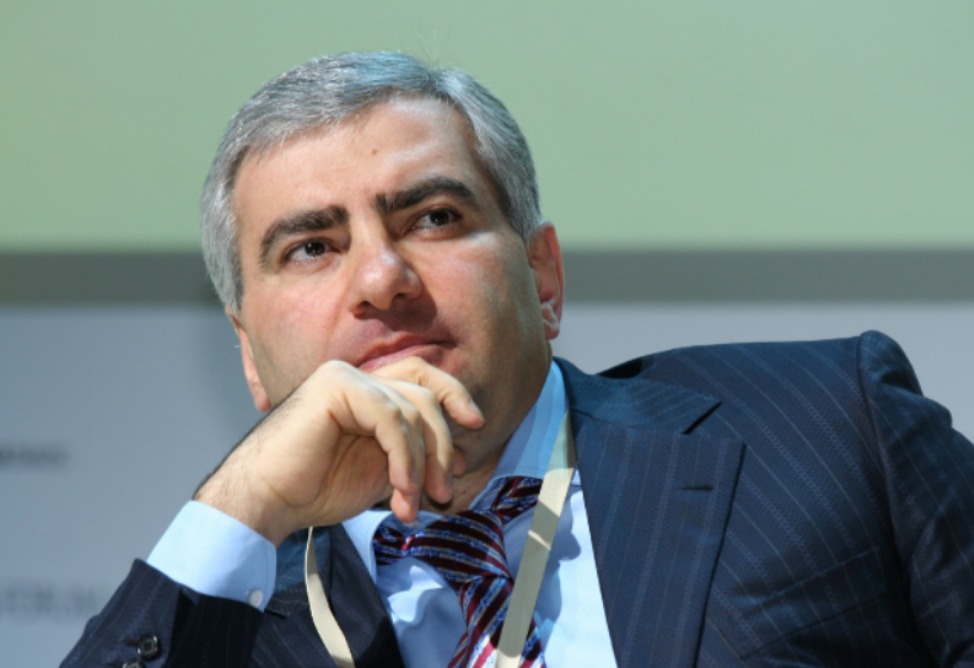Safarov’s pardon by Azerbaijan targeted at talks destabilization- Armenian FM
04.09.2012,
18:26
One of the reasons Azerbaijan has pardoned a life sentenced murderer of Armenian officer in Budapest Ramil Safarov is to destabilize talks process over Nagorno-Karabakh conflict peaceful settlement, Armenia’s FM Edward Nalbandyan said, Novosti-Armenia reports.

YEREVAN, September 4. /ARKA/. One of the reasons Azerbaijan has pardoned a life sentenced murderer of Armenian officer in Budapest Ramil Safarov is to destabilize talks process over Nagorno-Karabakh conflict peaceful settlement, Armenia’s FM Edward Nalbandyan said, Novosti-Armenia reports.
The Azeri serviceman, Ramil Safarov, was given a life sentence for hacking Armenian officer Gurgen Markarian to death with an axe on 19 February 2004 in Budapest during NATO training. On 31 August Budapest extradited Safarov to Azerbaijan where he was immediately pardoned by President Ilham Aliyev.
These actions erupted outrage in Yerevan. On 31 August Armenia’s President Serzh Sargsyan invited the heads of all diplomatic missions in Armenia to the extraordinary meeting and said Armenia suspends all diplomatic relations with Hungary.
“This incident has already had its negative impact on the peace negotiations, on the regional stability and security in general. However, it is not Armenia, but Azerbaijan that makes attempts to withdraw from the negotiations. And this deal (extradition of Safarov) is targeted at this thing,” Mr. Nalbandyan told journalists on Tuesday.
According to Nalbandyan, it is Azerbaijan that always ignores the proposals of the OSCE Minsk Group, particularly, to remove snipers from the frontiers line, investigation of the incidents.
Armenia’s FM highlighted that over the recent years Azerbaijan hasn’t changed its policy, and continues issuing bellicose statements, threats, organizing new provocations at the frontiers line, increasing the military budget at an unprecedented rate.
“The international community should not allow Azerbaijan to continue this tricky policy under the guise of negotiations, addressing threats to the regional and international security and stability,” he added.
The conflict in Nagorno-Karabakh broke out in 1988 after the predominantly Armenian-populated Karabakh declared about secession from Azerbaijan.
As Azerbaijan declared its independence from the Soviet Union and removed the powers held by the Karabakh’s government, the Armenian majority voted in 1991, December 10, to secede from Azerbaijan and in the process proclaimed the enclave the Republic of Nagorno-Karabakh. Full-scale fighting, initiated by Azerbaijan, erupted in the late winter of 1992. International mediation by several groups including Europe's OSCE’s failed to bring an end resolution that both sides could work with.
In the spring of 1993, Armenian forces captured regions outside the enclave itself. By the end of the war in 1994, the Armenians were in full control of most of the enclave and also held and currently control seven regions beyond the administrative borders of Nagorno-Karabakh. Almost 1 million people on both sides have been displaced as a result of the conflict. A Russian- -brokered ceasefire was signed in May 1994 and peace talks, mediated by the OSCE Minsk Group, have been held ever since by Armenia and Azerbaijan. -0-



